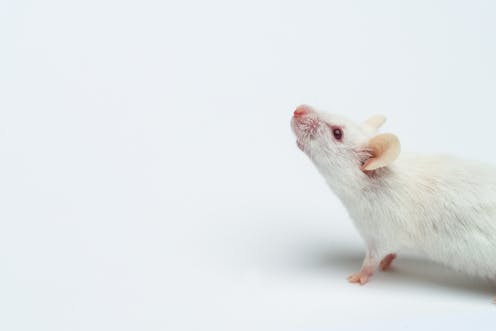
Kenya’s national airline – Kenya Airways – made headlines when it announced it would stop transporting monkeys for animal research. This followed an accidental highway crash in Pennsylvania, in the US, which involved a truck transporting monkeys that had been bred in Mauritius for laboratory experiments in the US.
Following the accident, the People for the Ethical Treatment of Animals (PETA) US, an animal rights group, contacted Kenya Airways urging them to reconsider transporting the animals, putting forward their view that animal experimentation is a cruel industry.
Read more: The macaque monkeys of Mauritius: an invasive alien species, and a major export for research
Such an incident is indeed tragic. But if we consider the number of people who would have died without the existence of medication and novel medical technologies developed thanks to animal research, then ending animal research could lead to a more tragic outcome in the longer term.
Most countries do animal research, perhaps not very tiny countries or very poor countries. There is a nationwide ban on animal testing for cosmetics throughout the European Union, Israel, Norway, as well as in India. But animal testing for other reasons is still widely accepted.
Most of the animals used come from commercial breeders – one is Jackson Laboratory in the US. Other sources include specialist breeders and large breeding centres which can provide genetically modified animals for specific research. The animal testing facilities themselves may also rear animals.
In general, all over the world, policymakers do aim to move towards animal-free methods of scientific research and have introduced very strict regulations for animal research.
Scientists and policymakers share the long-term goal of reducing animal use in scientific research and where possible eventually even stopping it. It’s an ambitious goal. For this to happen, animal-free methods need to be developed and validated before they can become a new standard.
Animal-free innovations have been developed for some areas of biomedical research, such as toxicology. However, most parties recognise that at present, not all research questions can be answered using only animal-free methods.
Based on decades of doing research on the human brain, which involves using animals, to us it’s clear that – for the foreseeable future – there remains a crucial need for animal models to understand health and disease and to develop medicines.
Unique knowledge
It is animal research that provides researchers with unique knowledge about how humans and animals function. Perhaps more than in any other field of biomedical research, complete living animals are needed to understand brain function, behaviour and cognition.
Behaviour and cognition, the final outputs of a brain organ, cannot be mimicked using any existing animal-free technologies. We currently simply do not understand the brain well enough to make animal-free solutions.
Another striking, very recent example that showed the current need for animal research is the COVID-19 pandemic. The way out of the pandemic required the development of a functioning vaccine. Researchers amazed the world when they made targeted vaccines available within one year. This, however, has relied greatly on the use of animals for testing the efficacy and safety of the vaccine.
A key fact that remains often invisible is that the rules and regulations for conducting animal research are, in comparison, perhaps even stricter and more regulated, by for example the Animal Welfare act in the US and the European Convention for the Protection of Vertebrate Animals used for Experimental and other Scientific Purposes in Europe. Than, for example, in the food and entertainment industry, although regulations are in place here too such as governmental rules for the treatment of animals in order to protect their health and wellbeing.
Should it be banned?
In the world as we know it today, animal research is still generally accepted as part of society. There are many important reasons why laboratory animal research is still needed:
To learn about biological processes in animals and humans.
To learn about the cause of diseases.
To develop new treatments and vaccines and evaluate their effects.
To develop methods that can prevent disease both in animals and humans.
To develop methods for the management of animals such as pests but also for the conservation of endangered species.
Of course many, animal researchers included, are hopeful that one day animal experiments will no longer be necessary to achieve the much needed scientific outcomes. However, the situation is that for many research questions related to human and animal health we still need animals.
As long as we cannot replace animals, there should be more focus on transparency and animal welfare, to benefit the animals as well as science. Awareness and financial support of this at the governmental level is key to enable animal researchers to always strive for the highest level of animal welfare possible.
The authors do not work for, consult, own shares in or receive funding from any company or organisation that would benefit from this article, and have disclosed no relevant affiliations beyond their academic appointment.
This article was originally published on The Conversation. Read the original article.







